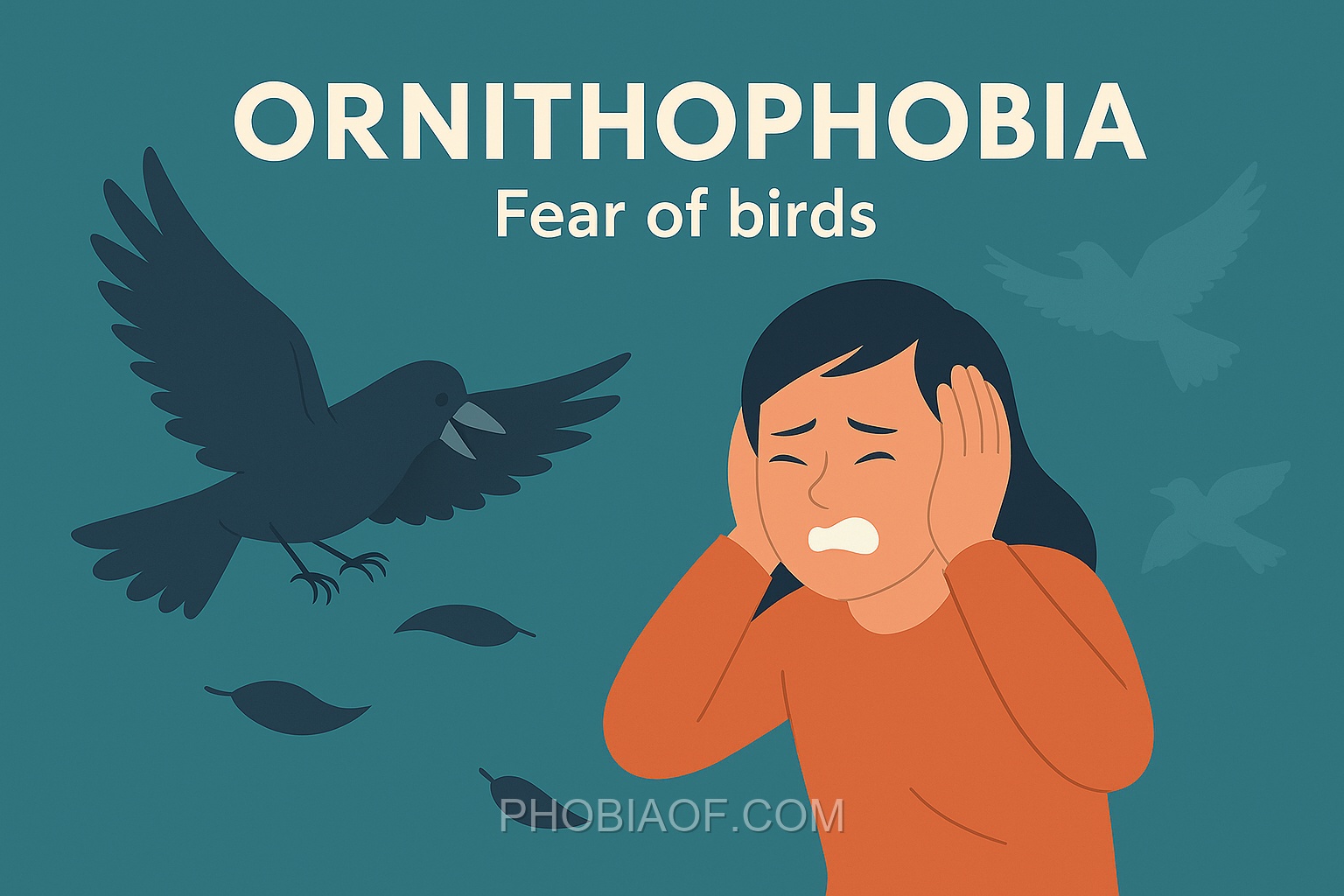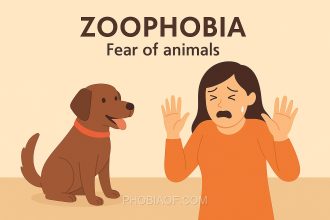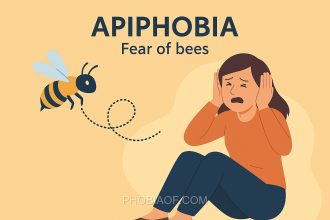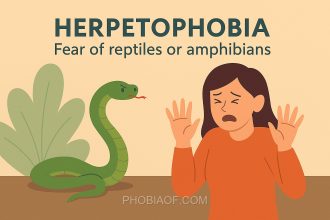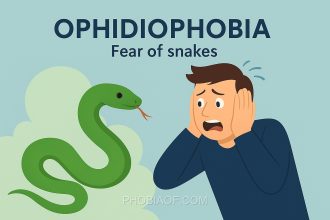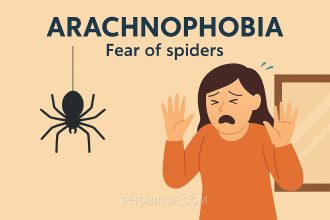Have you ever felt an overwhelming sense of dread at the simple flap of wings or found yourself anxiously avoiding the park because birds are everywhere? If so, you might be experiencing Ornithophobia, the fear of birds. This phobia can range from a mild apprehension to an intense terror, significantly impacting a person’s daily life.
The term Ornithophobia comes from the Greek words “ornitho,” meaning bird, and “phobia,” meaning fear. It’s more than just a dislike of birds; it’s a persistent, irrational fear that can lead to extreme anxiety and avoidance behaviors.
People with Ornithophobia might experience a range of symptoms, including:
- Increased heart rate or palpitations when near birds
- Feelings of panic or dread
- Avoidance of areas where birds are common, such as parks or beaches
- Physical symptoms like sweating, shaking, or shortness of breath
Understanding and compassion are key when it comes to supporting those who struggle with this phobia. For those affected, recognizing that their fear is valid and seeking help can lead to positive changes and improved quality of life.
Causes of Ornithophobia
Ornithophobia, the fear of birds, can stem from various causes, ranging from personal experiences to genetic factors. Understanding these causes can help in addressing the phobia effectively. Below are some common reasons why someone might develop this fear.
- Genetic Predisposition:
Some individuals may have a genetic predisposition to anxiety disorders, including specific phobias like ornithophobia. If anxiety disorders run in the family, there is a higher likelihood of developing similar fears.
- Traumatic Experiences:
A past traumatic experience involving birds, such as being attacked or startled by one, can lead to a persistent fear. This kind of experience can create a lasting impression, causing the individual to associate birds with danger.
- Learned Behavior:
Observing someone else, especially a parent or close family member, react fearfully to birds can lead to the development of ornithophobia. This learned behavior can become ingrained over time, especially in children.
- Psychological Factors:
Individuals with a general tendency towards anxiety or with other phobias may be more susceptible to developing ornithophobia. Psychological factors such as these can intensify fears and make them more difficult to overcome.
- Environmental Factors:
Environmental influences, such as growing up in a setting where birds are portrayed negatively or where there are many aggressive birds, can contribute to the development of this phobia.
Interestingly, some theories suggest that phobias like ornithophobia might have evolutionary roots. Birds of prey, for instance, could have posed a threat to early humans, leading to an ingrained fear response. Although this theory is not universally accepted, it offers a fascinating perspective on why such fears might exist.
Understanding these causes is crucial for developing effective treatment strategies, such as therapy and gradual exposure, to help individuals manage and overcome their fear of birds.
Symptoms of Ornithophobia
Ornithophobia, the intense fear of birds, can lead to significant distress for those affected. Individuals experiencing this phobia often encounter profound fear or anxiety when thinking about or encountering birds. This fear can manifest through a range of physical and emotional symptoms, which can be distressing and interfere with daily functioning.
Common symptoms of Ornithophobia include:
- Intense fear or anxiety: A pervasive fear at the thought or sight of birds, which may feel overwhelming and uncontrollable.
- Panic attacks: Episodes of acute fear that may include symptoms like shortness of breath, chest pain, and a feeling of impending doom.
- Sweating: Excessive perspiration that can occur when in proximity to birds or even when thinking about them.
- Rapid heartbeat: An accelerated heart rate that can accompany feelings of panic or anxiety.
- Trembling or shaking: Physical shaking that occurs as the body reacts to the fear stimulus.
- Avoidance of triggers: Steering clear of places where birds are likely to be present, such as parks or outdoor dining areas.
- Overwhelming dread: An intense sense of dread or doom when anticipating an encounter with birds.
- Nausea: Feeling sick to the stomach when confronted with the fear of birds.
- Feeling lightheaded or dizzy: A sensation of dizziness or faintness when exposed to the phobic stimulus.
- Emotional distress: Feelings of helplessness, embarrassment, or shame related to the fear of birds.
When severe, these symptoms can significantly interfere with an individual’s daily life, making it challenging to engage in activities that might involve encounters with birds.
Treatment for Fear of Birds
Ornithophobia, or the fear of birds, can be a distressing experience, but the good news is that it can be treated and managed effectively over time. With the right approach and support, individuals can overcome their fear and lead a more comfortable life. Below, we’ll explore various treatment options and coping strategies that have proven to be effective.
Proven Therapies
- Exposure Therapy: This gradual process involves slowly and safely facing the fear of birds in a controlled setting. The goal is to desensitize the individual to the fear trigger by gradually increasing exposure, starting from less intimidating scenarios and progressing to more direct interactions.
- Cognitive-Behavioral Therapy (CBT): CBT helps individuals identify and change negative thought patterns associated with their fear of birds. By reframing these thoughts, individuals can reduce their anxiety and respond to birds in a more rational manner.
- Counseling: Talking to a mental health professional can provide a safe space to explore the root causes of the phobia and develop personalized strategies to manage it effectively.
Self-Help Coping Techniques
- Relaxation Exercises: Techniques such as deep breathing, progressive muscle relaxation, and visualization can help reduce anxiety and promote a sense of calm when facing situations involving birds.
- Meditation: Regular meditation practice can improve overall mental well-being and help individuals manage stress and anxiety more effectively when confronted with their phobia.
- Support Groups: Joining a support group can provide a sense of community and shared understanding. Connecting with others who face similar challenges can be comforting and empowering.
Medication
In severe cases of ornithophobia, medication such as anti-anxiety drugs may be prescribed to help manage symptoms. However, it is typically recommended to focus on therapy and coping skills as the primary treatment methods.
Remember, overcoming a phobia takes time and effort, but it is entirely possible. If your fear of birds is interfering with your daily life, consider seeking professional help. A mental health specialist can guide you through the process and tailor a treatment plan to best fit your needs.
Stay positive and patient with yourself as you embark on this journey to overcome your fear.
Conclusion
Understanding ornithophobia, or the fear of birds, is an empowering first step for anyone who experiences this anxiety. By recognizing its causes and symptoms, individuals can better comprehend their own experiences and feel more in control of their reactions. Awareness of the phobia allows for a proactive approach to addressing it, which can significantly reduce its impact on daily life.
It’s important to remember that many people manage or overcome their phobias with time, patience, and the appropriate support. If you or someone you know is struggling with ornithophobia, consider reaching out to a mental health professional or talking to a doctor. Therapy, including cognitive-behavioral techniques, has shown effectiveness in helping individuals cope with and even conquer their fears.
Take heart in knowing that you are not alone, and with the right resources and determination, it is entirely possible to find relief and empowerment in the face of fear. Don’t hesitate to seek support if you need it, as there are numerous pathways to help you regain a sense of peace and confidence.
